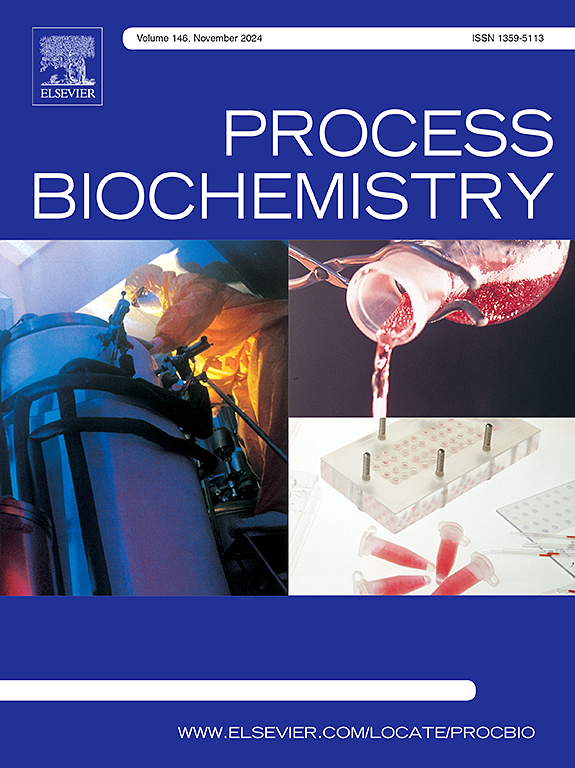From citrus waste to value-added products: Exploring biochemical routes for sustainable valorization
IF 4
3区 生物学
Q2 BIOCHEMISTRY & MOLECULAR BIOLOGY
引用次数: 0
Abstract
Citrus processing generates significant by-products, presenting both challenges and opportunities for their valorization through biotechnological methods. In alignment with circular economy principles, this review specifically examines the potential of citrus by-products as a sustainable feedstock for the recovery of bioactive compounds using fermentation, enzyme saccharification, and novel extraction techniques. The study highlights their application in functional foods, nutraceuticals, and industrial sectors by focusing on their polyphenols, flavonoids, essential oils, and pectin content. Furthermore, we assess the effectiveness of these biotechnological approaches in enhancing compound bioavailability, improving waste utilization, and supporting sustainable food production. Additionally, the review explores emerging non-food applications, including biofuel production, biodegradable packaging, and adsorbents. By providing a comparative analysis of various bioprocessing methods, this work offers insights into the most efficient and sustainable strategies for maximizing citrus waste valorization, contributing to waste reduction, food security, and the achievement of Sustainable Development Goals.
从柑橘废弃物到增值产品:探索可持续增值的生化途径
柑橘加工产生大量的副产品,通过生物技术方法为其增值带来挑战和机遇。根据循环经济原则,本综述特别研究了柑橘副产品作为利用发酵、酶糖化和新型提取技术回收生物活性化合物的可持续原料的潜力。该研究通过关注其多酚、类黄酮、精油和果胶含量,强调了它们在功能食品、营养食品和工业部门的应用。此外,我们评估了这些生物技术方法在提高化合物生物利用度、改善废物利用和支持可持续粮食生产方面的有效性。此外,综述探讨了新兴的非食品应用,包括生物燃料生产,可生物降解包装和吸附剂。通过对各种生物处理方法的比较分析,本研究为最大限度地利用柑橘废弃物、促进减少废弃物、粮食安全和实现可持续发展目标提供了最有效和可持续的策略。
本文章由计算机程序翻译,如有差异,请以英文原文为准。
求助全文
约1分钟内获得全文
求助全文
来源期刊

Process Biochemistry
生物-工程:化工
CiteScore
8.30
自引率
4.50%
发文量
374
审稿时长
53 days
期刊介绍:
Process Biochemistry is an application-orientated research journal devoted to reporting advances with originality and novelty, in the science and technology of the processes involving bioactive molecules and living organisms. These processes concern the production of useful metabolites or materials, or the removal of toxic compounds using tools and methods of current biology and engineering. Its main areas of interest include novel bioprocesses and enabling technologies (such as nanobiotechnology, tissue engineering, directed evolution, metabolic engineering, systems biology, and synthetic biology) applicable in food (nutraceutical), healthcare (medical, pharmaceutical, cosmetic), energy (biofuels), environmental, and biorefinery industries and their underlying biological and engineering principles.
 求助内容:
求助内容: 应助结果提醒方式:
应助结果提醒方式:


